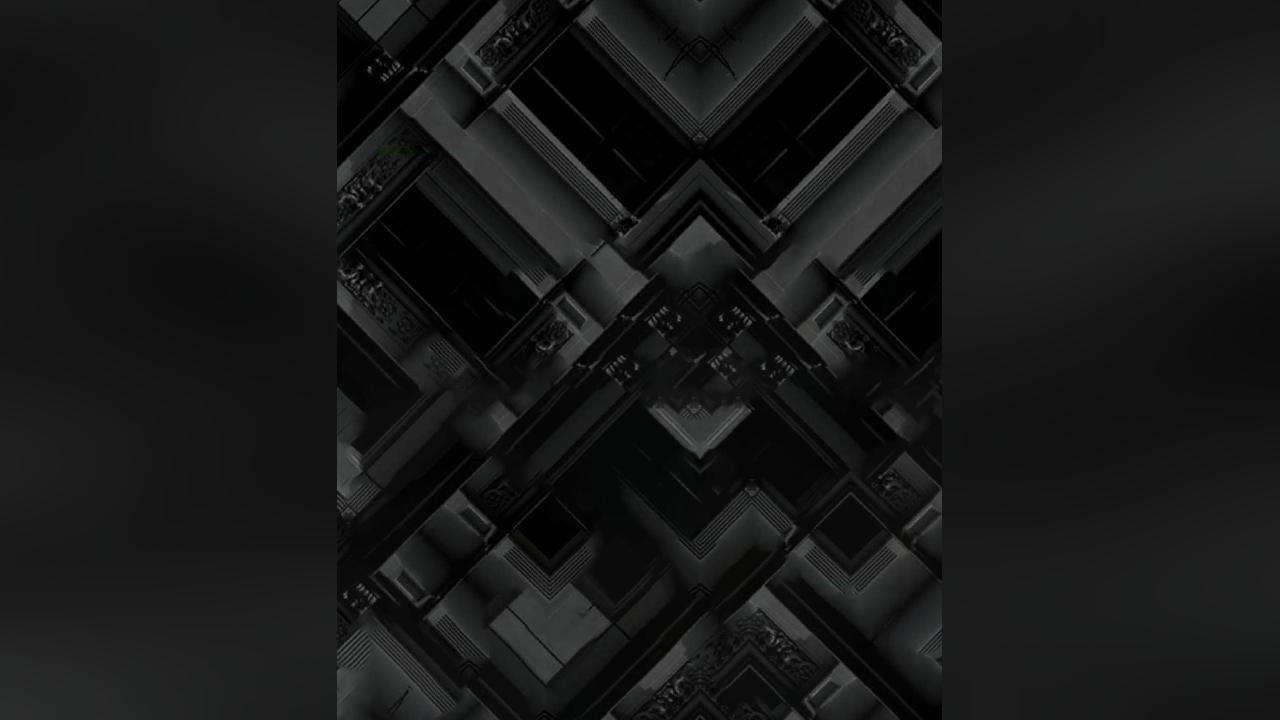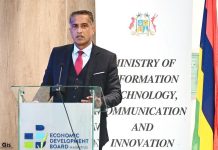Africa-Press – Mauritius. Various observers have argued that the hesitancy of African states to explicitly condemn Russia’s invasion of Ukraine is rooted in deep, Soviet-era ties.
During the mid-1950s, Africa was a Cold War battleground: The erstwhile Soviet Union supported African liberation movements and extended economic and security assistance to different anti-colonial or anti-US groups in the continent.
The dissolution of the Soviet Union in 1991 and its international isolation forced the newly established Russian Federation to disengage from Africa. Post-Soviet Russia displayed little interest in the African continent, and it was only in the late 2010s that the Kremlin once again displayed ambitions to develop its geopolitical relations with African states.
Today, Russia is attempting to rekindle its ties with African states, which are pivoting towards non-Western markets, partners, and international organisations. Analysts noted this increased engagement around ten years ago, which only grew after Russia’s invasion of Ukraine on 24 February 2022.
1 With its sizeable population, vast natural-resource base, and emerging business opportunities, Africa has re-emerged in Russia’s global agenda. Moscow’s approach on the continent is helped by its limited colonial baggage.[a],2Russian efforts are directed towards presenting itself as a friend that shares African societies’ traditional values, a partner in its economic development, and a bulwark against security threats.
President Vladimir Putin and Russia’s foreign minister Sergei Lavrov have seized every opportunity to portray Russia as an anti-imperialistic force and remind African leaders of the legacy of Soviet support in various African wars of independence against the exploitative Western coloniser.
[3]Over the last decade, Russia has accelerated its efforts in Africa at every possible opportunity, through political support as well as military equipment sales and security cooperation.
Today, Russia’s presence in and relationship with Africa is primarily characterised by the former’s political motivations, seen through practical engagements with a strong ideological undertone. To be sure, although Moscow’s presence in Africa is on a sharp rise, the baseline was low to begin with.
Thus, compared to Africa’s other international development partners such as the United States, China, and the European Union, Russia’s political influence, economic weight, and military presence is negligible.
However, Russia is an attractive partner for African leaders and elites due to their alignment of strategic narratives; cheap arms deliveries; economic benefits in the energy, mining, construction, and fertiliser industries; and a lack of normative conditionalities.
[b]The resurgence of Russia–Africa ties was highlighted in October 2019, when Putin co-chaired the first Russia–Africa Summit in Sochi,[4] which was attended by heads of state from 43 African countries.
Russia has since signed military-technical agreements with various African nations; secured lucrative mining and nuclear energy contracts; and influenced the outcomes of civil wars in Libya and the Central African Republic (CAR).
Russian private military contractors (PMCs), notably the Wagner Group, have also expanded their radius of action south of the Sahara. Russia currently exports more arms to sub-Saharan Africa than the US, France, and China combined.
[5] However, despite Africa’s attractiveness, Russia’s power projection in the continent faces various limitations. Russia’s bilateral trade in Africa stands at US$18 billion, lower than that with India (US$ 98 billion) and Turkey (US$34.5 billion) as of 2022-2023.
[6] Russia’s knowledge of socio-political realities in Africa is also poor, which can be attributed to the “lost decade” of Russian influence in the continent, following the fall of communism in the 1990s.
The war in Ukraine has underscored both the resilience of Russian engagement in Africa and its limitations. Due to African countries’ reliance on the import of grains and oil from Russia and Ukraine, the war’s associated disruptions in supply chains, unavailability of products, and rise in food and fuel prices have exacerbated food insecurity in Africa.
[7] The African Development Bank Group (AfDB) has noted how the invasion triggered a shortage of 30 million tonnes of grains in the continent, especially wheat, maize, and soybean.
[8] However, many African countries continue to engage with Russia in a business-as-usual fashion; some notable African economies have refrained from either condemning Russian aggression at the United Nations General Assembly (UNGA) or expressing unambiguous solidarity with Ukraine.
[9] The continuing division among African countries on this issue can be attributed to a combination of both historical and pragmatic reasons.
This brief reflects on Russia’s growing engagement with Africa—a region that Moscow is increasingly viewing as an important vector of its post-Western foreign policy.
The rest of the brief describes the historical ties between the erstwhile Soviet Union and Africa; compares the Soviet Union’s and Russia’s Africa policies; explores the primary drivers and strategic considerations of Russia’s outreach to Africa in the contemporary period; analyses the impacts of the Ukraine War on Africa; and argues why it would be prudent not to overestimate Moscow’s influence on the continent.
During the colonial period, the Soviet Union maintained little contact with Africa; it had an embassy only in Addis Ababa, which had existed since the tsarist period.
However, from 1950 onwards, the Soviet Union provided considerable support to African independence movements with the aim of advancing the Soviet Union’s ideological agenda in its confrontation with the Western bloc.
Such support from the Soviet Union materialised as economic and technical assistance, security cooperation, scholarships and training to African students, and party cadres.
The decision to closely cooperate with the Soviet Union was not easy for Africa, primarily because of the latter’s desire to maintain the autonomy of the African system of states and keep external actors out of the continent.
[10] African leaders were apprehensive of foreign involvement and feared getting entangled in superpower competition, as turned out to be the case during the US and Belgian intervention in the Congo in 1964 and during Angola’s civil war in 1975.
[11]However, this non-alignment was not strong enough to dissuade African leaders from seeking the assistance of non-African countries to fight Portuguese colonies and white-minority regimes in South Africa, Rhodesia, and Namibia.
Consequently, Soviet support was readily accepted during episodes like the Mozambique liberation movement in 1964, when the Mozambique Liberation Front (FRELIMO) used Soviet military equipment and training to fight the Portuguese.
[12] These developments led to African countries equating neo-colonial and imperialistic influence with the West,[13] while non-Western actors like Russia escaped the ‘imperialist’ tag.
After two decades of relative disengagement following the dissolution of the Soviet Union in 1991, Russia re-attached itself to the Soviet Union’s legacy of supporting African liberation struggles, regularly drawing on this legacy to oppose colonialism in Africa.
Both the Soviet Union’s and Russia’s Africa policies were marked by a continuous emphasis on the sovereignty of African countries and the mutually voluntary nature of involvement in the continent;[14] Soviet support to Somalia in the 1960s and to Ethiopia in 1974 was claimed to be on invitation from these African states.
[15] Similarly, Russian police officers with links to Russian domestic intelligence (FSB) have assumed security roles for presidents and political elites of African countries, as in the case of the CAR in 2017.
[16] Russia attributes the presence of such officials to ‘the will’ of African leaders.
[17]Russia’s support of South Africa’s African National Congress (ANC) against the backdrop of the Russia-South Africa nuclear deal in 2014 is an instance of Moscow furthering the Soviet Union’s support of the anti-apartheid movement.
Former South African President Jacob Zuma had received his military training in the Soviet Union. Once he was appointed president, Zuma and Russia concluded a nuclear power deal.
[18] Although the deal eventually backfired due to allegations of corruption against Zuma, the agreement reinforces Russia’s reputation as a champion of the African liberation movement.
[19]The Soviet Union’s and Russia’s Africa policies differ on certain fronts. During the Cold War, the Soviet Union used to directly intervene in African states in which the United States and its allies had strong interests.
In contrast, Russia has focused on countries that were largely ignored by the West, thus refraining from positioning itself as a direct competitor to the West and engaging with countries that have few alternative partners;[20] countries such as Libya, Sudan, and Zimbabwe, where Russia has been active since 2014, are all under United Nations (UN) and/or European Union (UN) multilateral sanctions for war crimes.
In countries like the CAR and Mali, Russia’s involvement appears to be the result of a vacuum created by the withdrawal of France (2013-August 2022) and the United Nations peacekeeping mission in Mali, known as MINUSMA (April 2013-June 2023).
Additionally, Russia’s current approach is far less state-centric compared to the Soviet approach during the Cold War. Most Russian activities in Africa from mid-2010 onwards have been conducted by Putin’s network of cronies, many of whom control Russia’s state-controlled natural-resource conglomerates.
Businessman and Putin’s close associate, Yevgeny Prigozhin, until his reported death in August this year, oversaw a network often referred to as the ‘Company’ and which comprises the PMC known as Wagner Group, which has conducted several paramilitary and political operations in Libya, Sudan, Mozambique, the CAR, and Mali.
This network is not legally recognised as part of the Russian state but is nevertheless closely connected to the Kremlin.
[21]Russia’s outreach in Africa is closely related to the former’s quest for a more multipolar world order as well as to the growing competition between Russia and the West.
Although Africa is not a priority for Russia’s foreign and security policy, its importance has grown following Russia’s invasion of Ukraine, due to which Russia is finding itself alienated from the West. Additionally, the Soviet Union’s engagement with Africa during the Cold War did not reap many rewards for African states.
The Soviet Union experienced considerable gains while financial costs kept escalating, resulting in nearly US$17 billion worth of debt for sub-Saharan nations, which they owed to post-Soviet Russia following its political retreat in the 1990s.
[22]Russia is now avoiding large-scale commitments typical of the Cold War period, attempting to keep its investments low while gaining higher returns, heralding Russia’s shift towards a more extractive and opportunistic approach in Africa.
[23] For example, Russian oil giant Rosneft embarked on search-for-business deals in countries like Mozambique and Angola, where its CEO and Putin’s close associate Igor Sechin served as a military translator in the 1980s.
[24]Moscow has been successful in achieving an outsized influence in the continent despite the lack of compelling ideological or social resonance in the region. One of these approaches is through mercenaries from the Wagner Group who control gold mines and occupy security positions for autocratic leaders.
Other ways by which Russia is advancing its interests in the continent range from disinformation campaigns to undermine the support for democracy, security cooperation, and enabling educational and cultural exchanges, to courting African members of the United Nations Security Council (UNSC), as was evident from the divided voting patterns of African countries on the Russia-Ukraine conflict.
However, conventional means such as the Russia-Africa Summit have failed to produce the desired results. At the second Russia-Africa Summit, held in St. Petersburg on 27–28 July 2023, leaders from only 17 African countries participated, compared to the 43 countries at the 2019 summit in Sochi.
Additionally, there were no commitments at the summit on renewing the Black Sea Grain Initiative through which Ukraine exported grains to several African countries.
[25] Although President Putin pledged free exports of 25,000–50,000 tonnes of grains to Burkina Faso, Mali, Zimbabwe, Somalia, the Central African Republic, and Eritrea, this is negligible in comparison to the 725,000 tonnes of grains shipped by the UN World Food Program to several African countries under the Black Sea Grain initiative.
[26] Moreover, Putin and Zelensky’s refusal to conduct ceasefire or peace talks without an initial agreement for the complete withdrawal of troops on both sides has amounted to the rejection of the African Peace Mission to Ukraine and Russia.
[27]Economically, Russia aims to gain access to Africa’s natural resources (oil, diamond, and gas) while boosting its own export of agro-products (grain), fertilisers, digital, space, arms, and nuclear technologies to African countries.
Russia views the continent as having vast economic potential due to its large market and abundant natural-resource base. For example, a substantial percentage of Russian aluminium is made from bauxite from Guinea, where Russian aluminium producer Rusal has large mining concessions.
[28]Militarily, Russia frames itself as an anti-jihadist force striving to deepen security partnerships with African armies and secure access to key infrastructure. Africa is an important market for Russian weapons, with the bulk of purchases made by Algeria and Egypt.
[29] Between 2017 and 2021, “African countries accounted for 27% of Moscow’s overall arms sale, while Russian companies continued to provide maintenance services for Soviet-era equipment.
”[30]Diplomatically, Russia seeks African votes in support of its position at the UN, which was evident at the UNGA votes in the aftermath of the invasion of Ukraine.
The fact that many African countries abstained from voting, or even voted against the resolution to condemn Russian aggression against Ukraine, is telling.
[31]Geographically, most Russian activities have focused on the Middle East and North Africa (MENA), which has paved the way for Russian engagement with southern Africa. North Africa is important for Russia, as it allows Moscow to secure a presence in the Mediterranean.
The Horn of Africa and wider Eastern Africa are also attractive for Russia, as international players like China, the US, the Gulf states, and France compete for influence in the region. From the mid-2000s onwards, Russia has consistently expanded its share in the grain exports of countries like Egypt and Sudan.
Russian intervention in Syria also provided Moscow with the opportunity to showcase and combat-test its military equipment, subsequently acquiring new clients in sub-Saharan Africa and increasing its share in arms export to the region.
The Russian invasion of Ukraine highlighted both the resilience and limitations of Russian influence in Africa. Despite being geographically distant from the battlefield, the conflict had repercussions in Africa, especially economically.
The war disrupted the supply of agricultural commodities to Africa, raising the prices of these commodities and exacerbating food insecurity and poverty across the continent.
Additionally, various Ukrainian ports along the Black Sea through which fertilisers, wheat, and crude oil were shipped to African countries were blockaded, choking a major artery for the movement of commodities.
Despite these repercussions, African countries were divided in their votes at the UN emergency session to vote on a resolution to condemn Russia’s invasion of Ukraine.
[32] The African continent comprises a sizeable voting bloc of 54 countries, constituting 28 percent of the General Assembly’s members.
In the first vote, 28 African countries voted in favour of the resolution, 17 voted to abstain, eight did not submit a vote, and only Eritrea voted against the resolution.
In the next vote, “only 19 percent of African states voted to suspend Russia from the United Nations Human Rights Commission (UNHRC) and in the third vote, 56 percent of African countries voted not to recognise the annexation claims of Ukrainian territories.
”[33]Such lack of consensus on the part of African countries is not surprising; African countries have been taking ‘non-aligned’ positions because they do not want to be drawn into proxy wars between the West and Russia and China, as they are attempting to diversify their external partners while maintaining and balancing their relationships with both the West and the East.
Moreover, Russia’s military and material support, which comes with no strings attached, is essential in African countries’ fight against jihadist insurgency.
“Whenever an African authoritarian government would face United Nations sanctions, allegations of fraudulent elections, or criticism for human right abuses, Russia would cast itself as the beleaguered regime’s defender on the global stage”—[34] this allows Russia to develop clientelist relations with authoritarian leaders using asymmetrical, inexpensive means like regime protection, co-option, electoral interference, and opaque arms-for-resource deals.
The Wagner Group has been actively involved in conflicts in Libya, Mozambique, Madagascar, Syria, Sudan, the CAR, and Mali. The group holds the status of an independent contractor that does not overlap with the Russian state.
Thus, the group acts in a way that is distant from the Russian state but simultaneously provides Russia with a tool for building military cooperation with various countries.
The Wagner Group’s activities in Africa are primarily motivated by African governments’ requests for security assistance, particularly since African leaders feel that Western states have not done enough to aid security cooperation and military sales in the continent.
[35] Wagner’s strategy has been classified as three-tiered:[36] first, Wagner operatives conduct disinformation campaigns, including fake polls and counter-demonstration techniques.
Second, the group mostly secures payments for its services through concessions in extractive industries, particularly precision metal mining operations.
Third, Wagner becomes involved with the country’s military, launching a direct relationship with Russia’s military forces which involves training, the personal security of African leaders, and advising and conducting anti-insurgency operations.
The deployment of Wagner paramilitaries in Africa first began in Libya in March 2019, where the Russian military supported rebel leader Khalifa Haftar to install himself as the new strongman in the mould of Muammar Gaddafi.
[37] Through Russian support, Haftar took control of most of the rich oil fields in Libya, in exchange for which he promised Moscow lucrative oil deals.
[38] Additionally, Russia provided arms and political support to the 2013 military coup led by General Abdel Fattah al-Sisi in Egypt. Russia-Egypt ties reached new heights in 2019, with the maiden Russia-Africa summit.
Source: Orfonline
For More News And Analysis About Mauritius Follow Africa-Press







